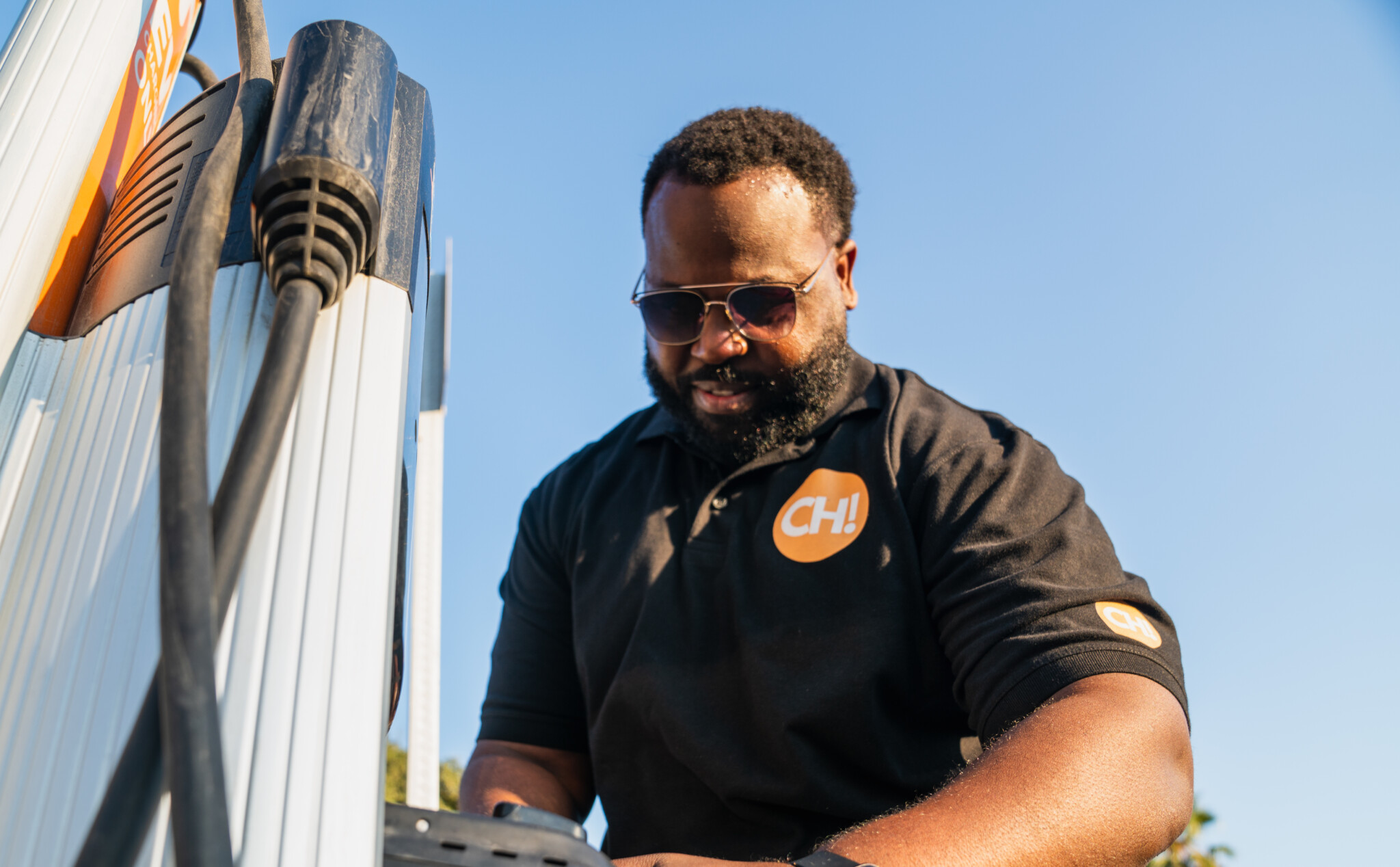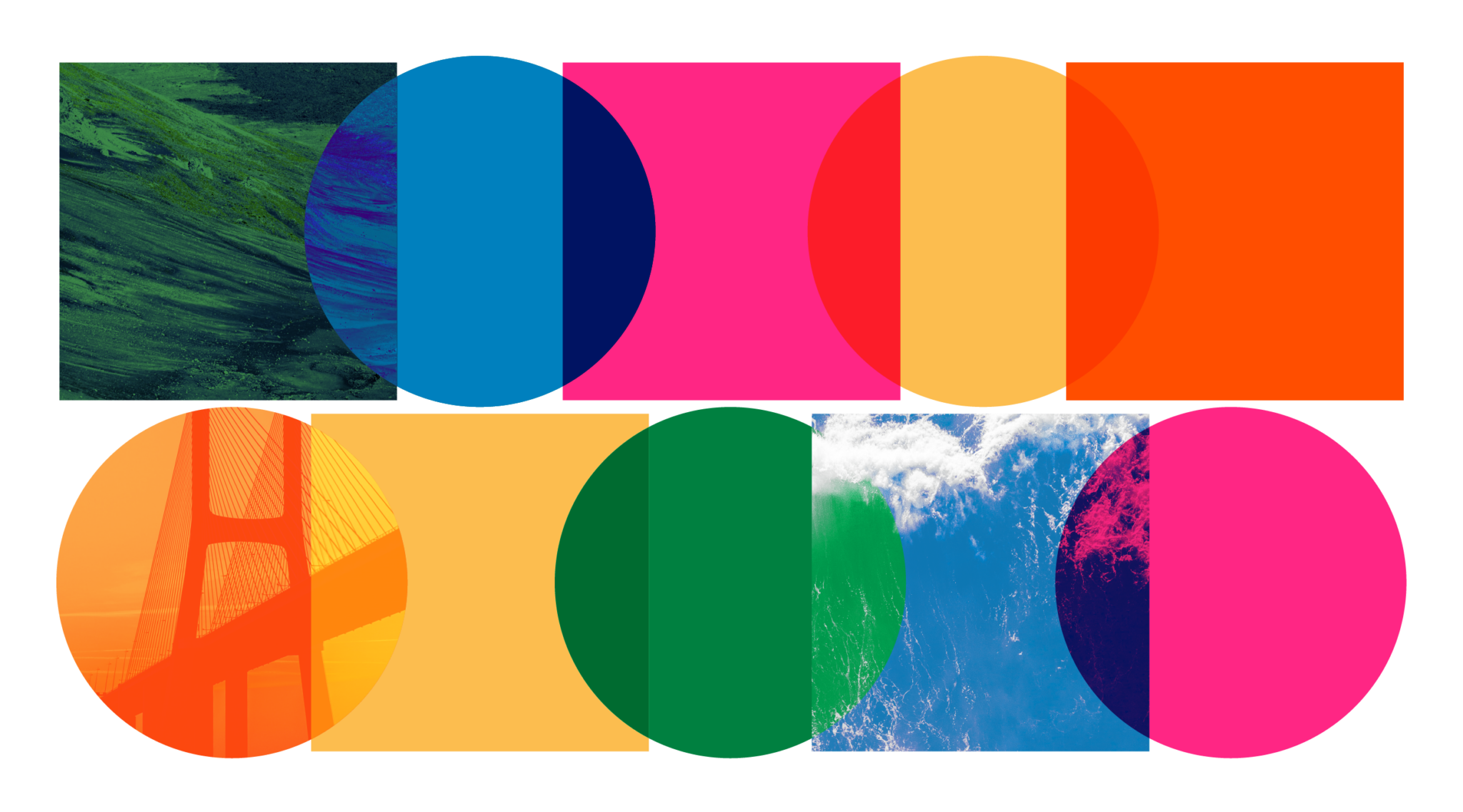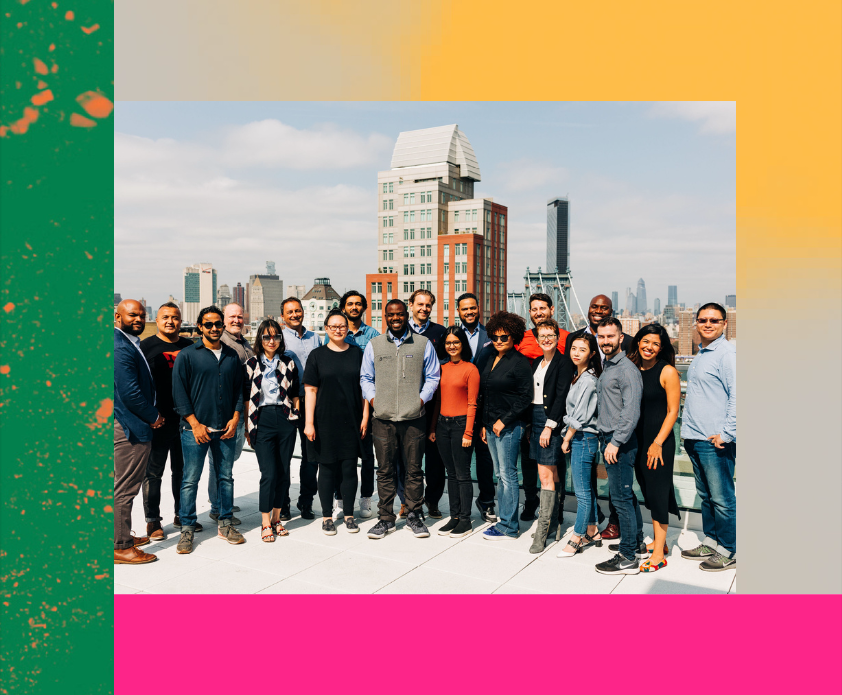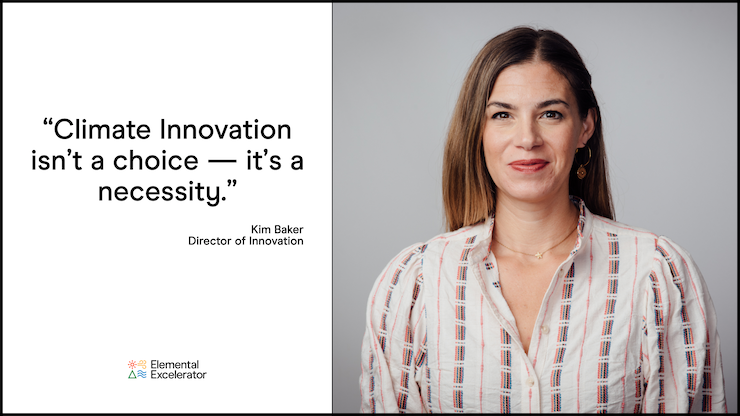
As we embark on recruiting for Elemental’s Cohort 11, we spoke with each of our Directors of Innovation about what they’re looking to fund this year, what motivates them in their work, and much more. If you are an innovator interested in building the future of water infrastructure and the circular economy with Kim Baker — who has guided dozens of companies through our program as Senior Director of Innovation — learn more about our funding opportunities and apply today!
What inspired you to work fighting climate change?
I grew up spending time on a small island where there were no stores or gas stations, and whatever waste we created had to be hauled off on a ferry. The residents fished, gardened and composted, and shared things they no longer needed — chairs, jeans, dishes, you name it. Concepts like decentralized agriculture, water conservation, and shared economy came naturally since there was simply no other choice. Take away these natural boundary conditions of a small island, however, and you find that people buy and waste more than they need and quickly dispose of items that no longer serve a purpose.
In my early 20s as an environmental engineer working with large energy and petroleum companies, I found myself standing in a Tyvek suit and a respirator mask in a refinery flare zone. It troubled me to know that when the wind blew a certain way, people in frontline communities a few miles away would experience significant degradation of air quality with no respirator masks in sight. And when a pipeline job resulted in oil leaking into the slough the fish and birds certainly didn’t have a Tyvek suit to wear for protection.
I focus on elevating both new technologies as well as the wisdom of frontline communities
I realized that we’ve got to move away from fossil fuels and solve for environmental issues before they happen because it takes decades and billions of dollars to clean them up — and I wanted to do more than just address the mess. That led me to Elemental, where I focus on elevating both new technologies as well as the wisdom of frontline communities through sustainable business models that can grow into mainstream solutions.
What’s the best part of working with founders?
Founders are some of the most intelligent, dynamic, and creative people I’ve ever met. Starting and running a company can be a lonely yet deeply significant position, and my primary mission is to support them as they seek to redesign systems that impact all of our lives. As a Director of Innovation, I am constantly learning, iterating, and problem solving. Sometimes that means working with portfolio companies on overarching business strategy at the board level while other times it’s dissecting a detailed problem to highlight a key issue or launch a new goal.
During our diligence process, I flex from the big picture to using my technical skills to understand intricate features of a technology that may set the company apart and how it may be received by a particular community or group of individuals. It’s a puzzle that is constantly regenerating itself and it’s my job to hold all of the pieces.
What’s one thing about climate innovation that you wish more people knew?
That climate tech makes good business sense! Climate innovation companies are not in it for marketing or PR or even because the leaders are do-gooders (which they are!) but because they can create a sustainable business that provides a financial return and a beneficial impact on our people and planet. As we watch our industrial foundations shift and systems get redesigned, we will see that climate innovation isn’t a choice — it’s a necessity.
From your position leading Elemental’s water and circular economy portfolio, what areas are particularly ripe for innovation in 2022?
Water is a finite resource, and human consumption, water extraction, and industrial activity have all contributed to less potable water, more widespread salinity, and contamination as well as longstanding drought conditions. Covid exposed additional health and sanitation-related challenges ranging from access and manpower to data availability and onsite operations. Industrial processes and food-related production efforts require water — often as a primary input — yet it’s rarely centered in climate solutions. Through effective system optimization, decentralization, and reuse we can achieve more balanced food and industrial systems.
This year, we are specifically interested in technologies related to:
- The intersections of water x agriculture and water x hydrogen
- Brine management and resource recovery
- Workforce and workflow management platforms
- Real-time sensing and AI for treatment system optimization
- Stormwater/flood management and earth observation science
- GenX chemicals
- Industrial water reuse
On the circular economy side, we have the opportunity to deconstruct our linear, extractive systems and rebuild the foundations of our economy with circularity at the center. But to do so, we need enabling technologies that provide platforms for this new approach and alternative materials to meet the needs of cities and built environments. In order to reach net zero, we must redesign manufacturing standards and materials to implement sustainable alternatives that meet the levels of human consumption. At the same time, we need to commercialize engineered solutions to capture and store residual and pre-existing carbon.
We are specifically interested in technologies related to:
- Alternative materials innovation including green chemistry, plant/ocean based materials, and nano-materials
- Sorting technologies and management solutions for repurposing and extraction of raw materials
- Digital infrastructure to allow for closed loop systems
- Robotics and automation
- Low-carbon or carbon negative construction materials including wood, steel and leather alternatives
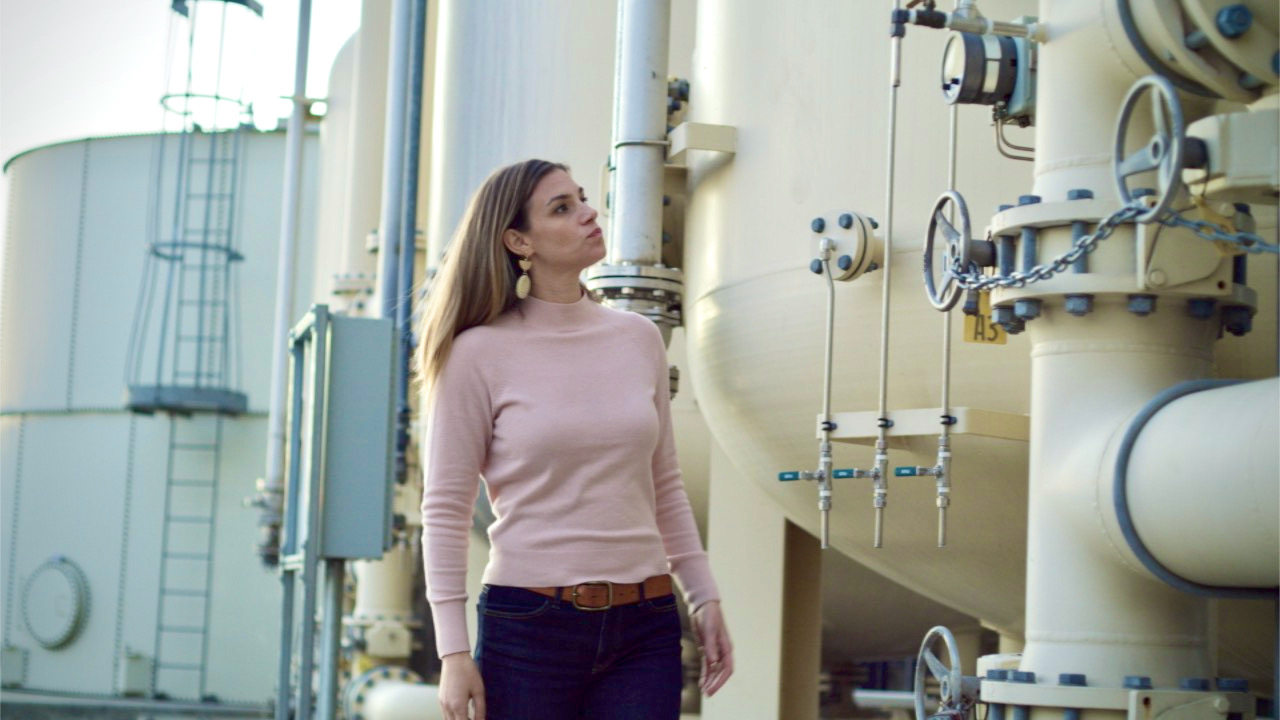
⚡️ Lightning round:
Best thing you’ve read this year? I just finished reading The Vanishing Half by Brit Bennett. It’s a fantastic novel that places you directly into the racial divide of American history and allows the reader to feel the twists and turns embedded into the lives of two twin sisters.
Favorite way to spend a day off? Waking up in a national park or wooded trail with a hot cup of coffee followed by a warm sunny day on the trails or at the beach.
Worst job you’ve ever had? Waiting tables. Everyone should work in the service industry at least once in life to appreciate how it looks behind the scenes.
What’s your superpower — and what’s your kryptonite? I’m a multi-tasker and having worn many hats during my career allows me to easily flow between stakeholder groups and technical conversations. My kryptonite is when people aren’t genuine.
What can you eat an infinite amount of? Chocolate
What’s your “dance like nobody’s watching” song? Sister Nancy’s “Bam Bam.” It’s the song I remember our friends dancing to at our wedding and the theme song for any girls trip.
• • •


